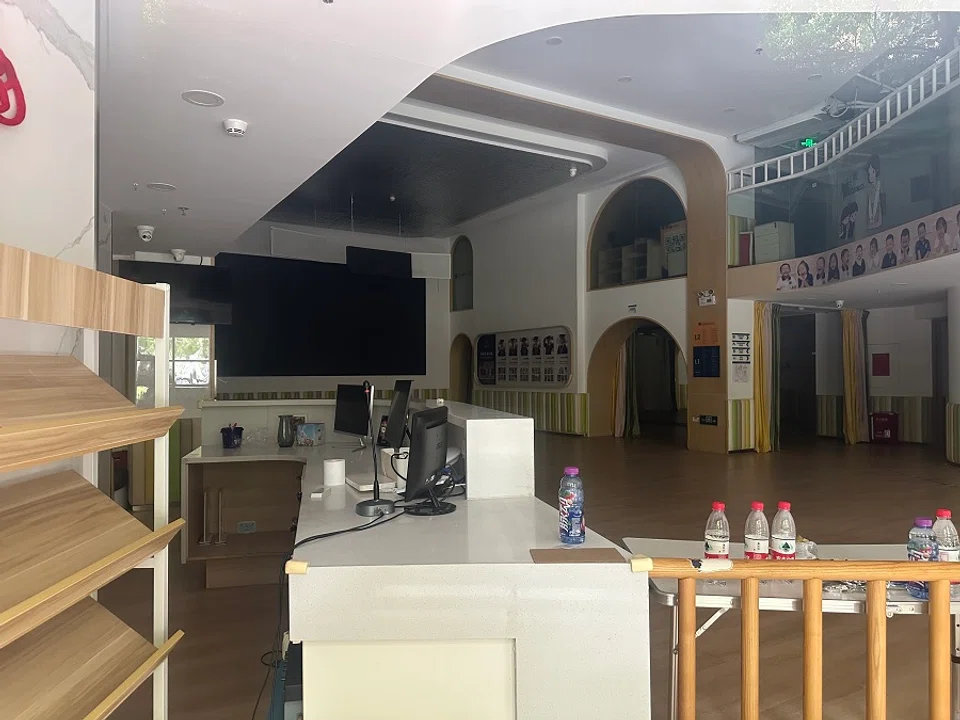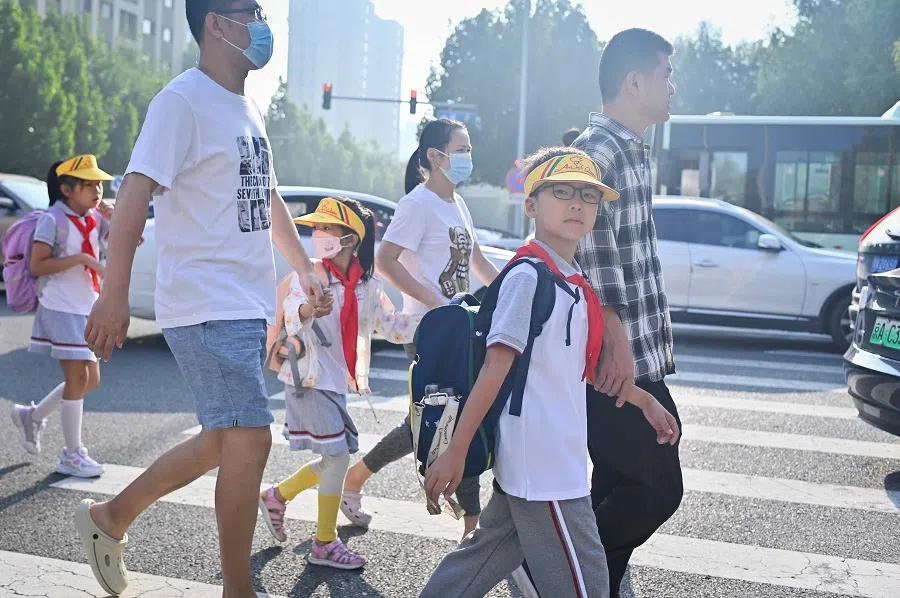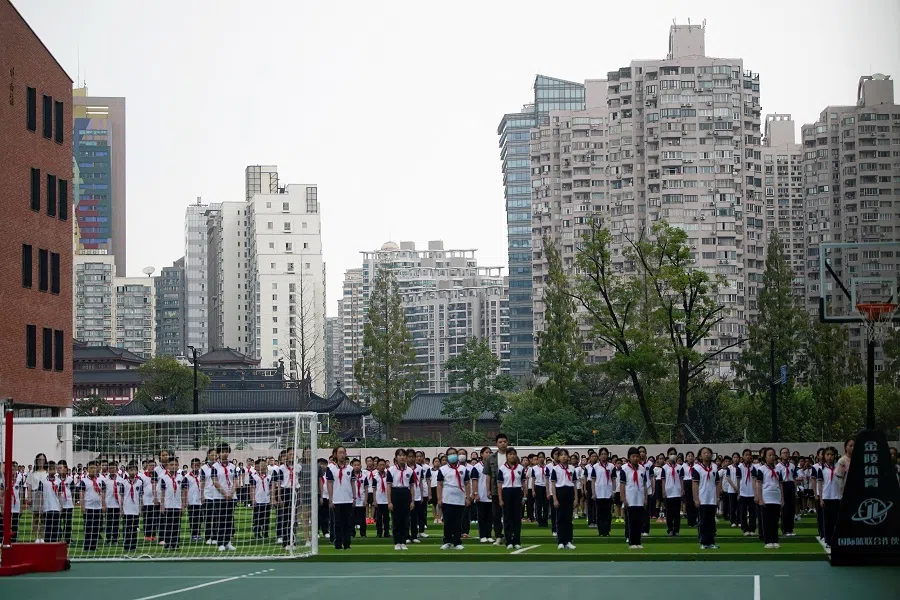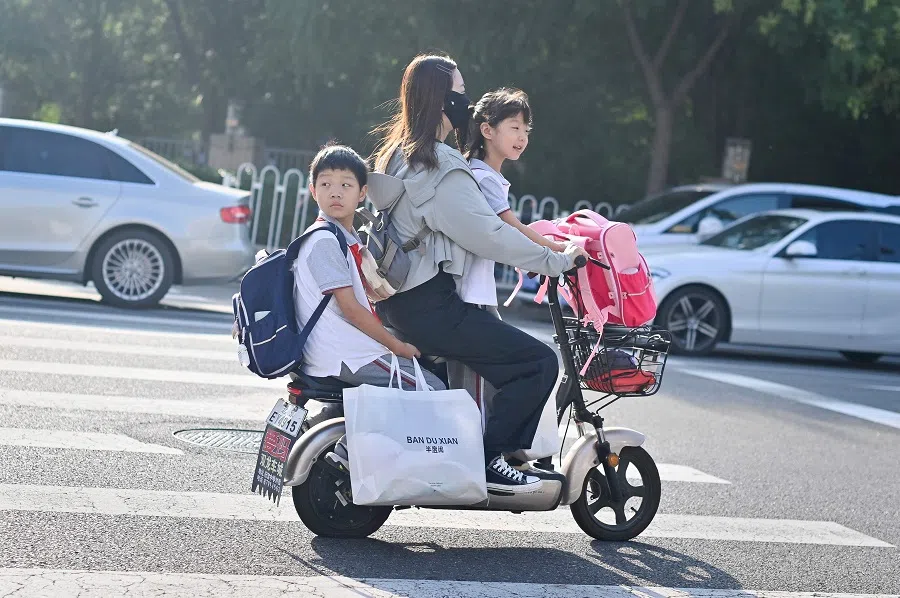Closure of international schools in China due to economic downturn
The current wave of closures among international schools in China can be attributed to factors such as high tuition fees, options in other countries, and falling birth rate. But the biggest factor is undoubtedly financial tightening by parents, in turn due to China's economic situation. Zaobao journalist Daryl Lim finds out more.

Amid declining student recruitment numbers, international schools in China in areas such as Shenzhen and Zhuhai have been shuttering. An industry insider noted that the declining Chinese economy was one factor spurring this wave of shutdowns. With more and more Chinese families feeling the financial pinch, an expensive international education is one load they are finding hard to handle.
In the past month, parents have been spreading on social media that the Invictus International School's preschool division at Nanshan District in Shenzhen had ceased operations in early July. The sudden news left many parents stunned, as the school closed down just four days after it issued a notice to teachers and parents. Not only that, just in late June, the school had sent out a recruitment notice for the fall semester.
Invictus is an international school established in 2015, and headquartered in Singapore. It entered the Shenzhen market in 2020, setting up a preschool and primary-to-secondary-school in the Nanshan and Longhua districts respectively; the latter closed in 2022.

So far, Invictus has not officially announced that its Shenzhen campuses have ceased operations. A visit to the two campuses revealed that the Longhua campus has been taken over by a military camp, while the one at Nanshan is empty, with the gates padlocked and some school signs removed. The Invictus website has removed all information pertaining to Shenzhen, and the school has not responded to queries as of the time of writing.
Parents choose to let their children have an international education mainly in the hope of giving their children an alternative path from traditional Chinese education, and to prepare them for studying overseas in the future.
Wave of closures
According to rough estimates by industry insiders, at least eight international schools have closed down in Shenzhen in the past two years, including Dulwich EY Centre Shenzhen under the UK's Dulwich College, an international school that had been in China for over 20 years.
Besides Shenzhen, another Singapore-based international school EtonHouse also shuttered its international preschool in Gaoxin district in Zhuhai on 31 July.
Responding to queries from Lianhe Zaobao, a spokesperson for EtonHouse said the Gaoxin campus was shuttered because the lease had expired, along with falling student recruitment and demand for preschool education. "These are all factors that are out of our control. We decided not to renew the lease, in line with our business strategy for this region. Our plans to develop in China are not affected by this, and we will continue to seek opportunities to grow in this key market."
In China, "international schools" refer to all schools that offer an international syllabus, including schools with all-foreign students as well as private bilingual schools. Parents choose to let their children have an international education mainly in the hope of giving their children an alternative path from traditional Chinese education, and to prepare them for studying overseas in the future.
... many expatriates from multinational corporations have yet to return to China and their children's places at schools have not been filled...
Chinese consumer confidence heavily affected
On the closure of international schools, industry insiders said that besides the declining birthrate in China impacting student recruitment rates, the current economic climate in China is also a key factor indirectly affecting the industry.

Greg Smith, former head of school at Shekou International School and vice-president of ISS with responsibility for Asia Pacific region, said despite China's relaxation of Covid measures earlier this year, many expatriates from multinational corporations have yet to return to China and their children's places at schools have not been filled due to lacklustre economic recovery and other factors.
Also the chair of the China-Australia Chamber of Commerce-South China, Smith said, "Foreign students account for a significant portion of the student body of international schools, but their absence has a greater knock-on effect on overall enrolment. I foresee that more internationalised cities like Shanghai will take a harder hit, given that foreign students currently only make up about 20% of the student body in some schools."
Kang Yijun, deputy general manager of Three Little Elephants, an international school consulting firm in the Greater Bay Area, said China's low consumer confidence in recent years has also been a major reason that international schools have found it difficult to get students.
...a growing number of middle-class families are sending their children to international schools in Southeast Asian countries...
Income pressure on parents
She explained that, apart from international schools that only serve the children of expatriates, most private bilingual schools in China are targeted at Chinese students. However, parents are tightening their belts amid the current economic slowdown and becoming more cautious about spending on their children's education.

She said, "International school fees are expensive, some as high as 300,000 RMB (roughly US$41,000) per year. Many parents do not have that much money now and are leaning towards free public schools or normal private schools with cheaper tuition fees."
Smith also pointed out that most parents of current students at international schools do not wish to completely withdraw their children from the international school education system and see their previous efforts go to waste. However, due to economic pressure, they have no choice but to transfer their children to cheaper international schools with lower tuition fees.
He added that because international tuition fees are 25% more expensive in China than in other countries, a growing number of middle-class families are sending their children to international schools in Southeast Asian countries in recent years, leading to falling enrolment in China.
Government regulation
From a macro perspective, Smith thinks that the wave of international school closures over the past two years is closely related to the disorderly expansion of international education during China's rapid economic growth in the past decade.
"Schools with relatively poorer conditions naturally will not stand the test of time and will close. Those that remain are basically the better schools." - Kang Yijun, deputy general manager of Three Little Elephants

He explained that back then, international education was highly favoured among investors, drawing a massive amount of hot money and developing rapidly. However, this was contained following the Covid-19 outbreak in 2020 and the regulatory crackdown by the authorities.
He said, "The benefits of regulation to the long-term development of international education are unquestionable. However, if some schools are founded on the belief that the industry will always be smooth sailing, when things suddenly change, the schools' investors will be forced to make a decision. To some schools, the only sensible option is to cut losses promptly."
Kang thinks that the crackdown on international schools in the past few years is essentially a screening and elimination process. "Schools with relatively poorer conditions naturally will not stand the test of time and will close. Those that remain are basically the better schools."
This article was first published in Lianhe Zaobao as "中国国际学校生源不足引发倒闭潮 经济下行压力是主因之一".
Related: Big Read: Rich Chinese kids going on overseas study tours could worsen China's socioeconomic divide | China's youth unemployment situation could be far worse | Xi Jinping calls on young Chinese to embrace hardship | Singapore is becoming the preferred study destination for affluent Asian families | China's young families sending kids to international schools in Thailand





![[Big read] When the Arctic opens, what happens to Singapore?](https://cassette.sphdigital.com.sg/image/thinkchina/da65edebca34645c711c55e83e9877109b3c53847ebb1305573974651df1d13a)